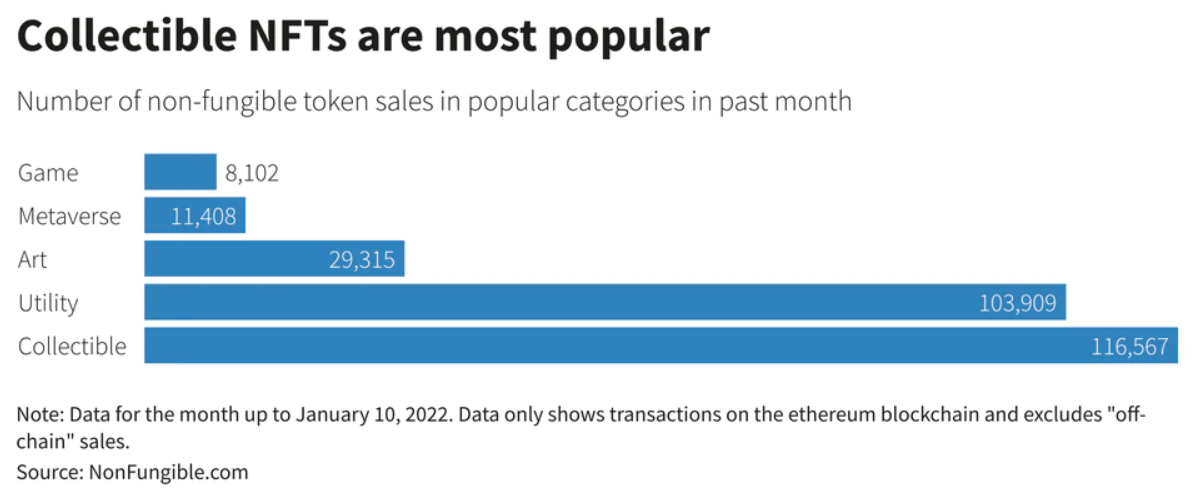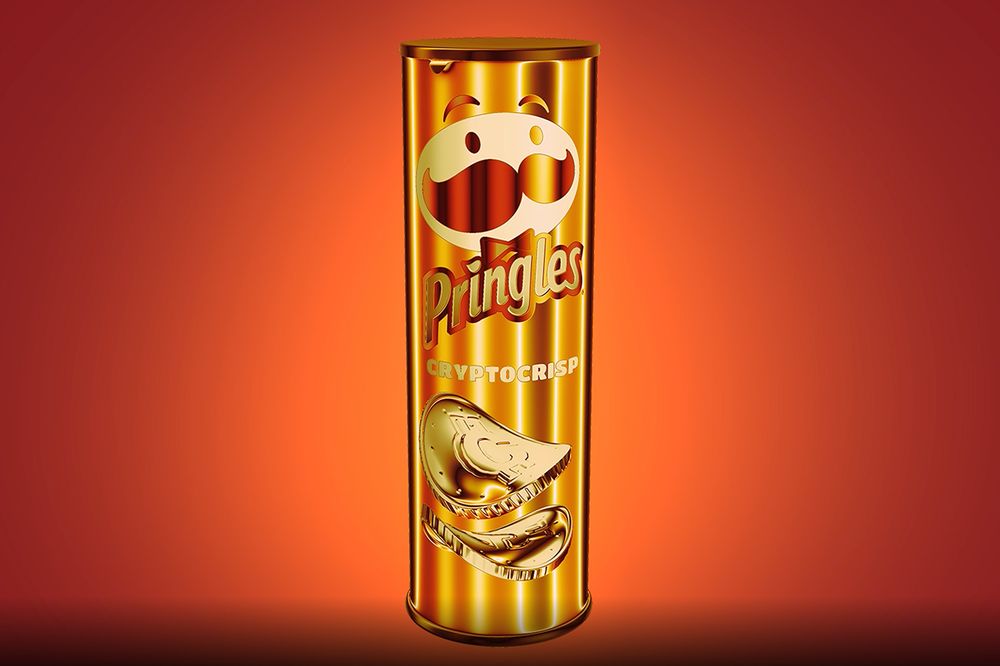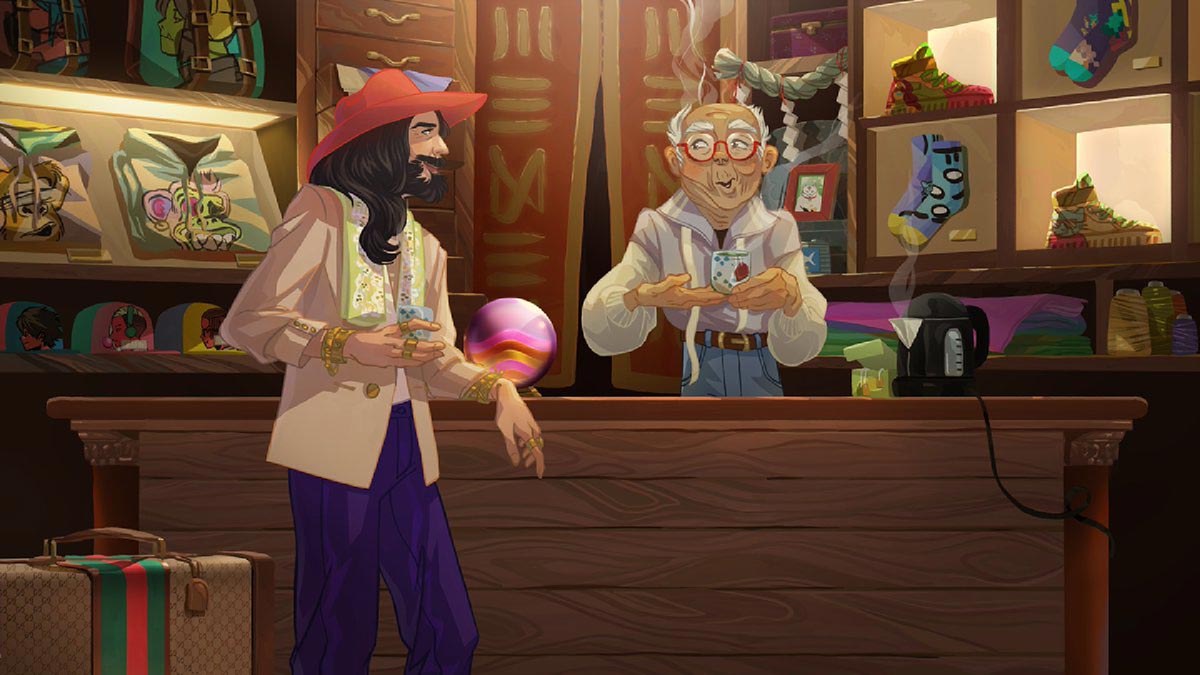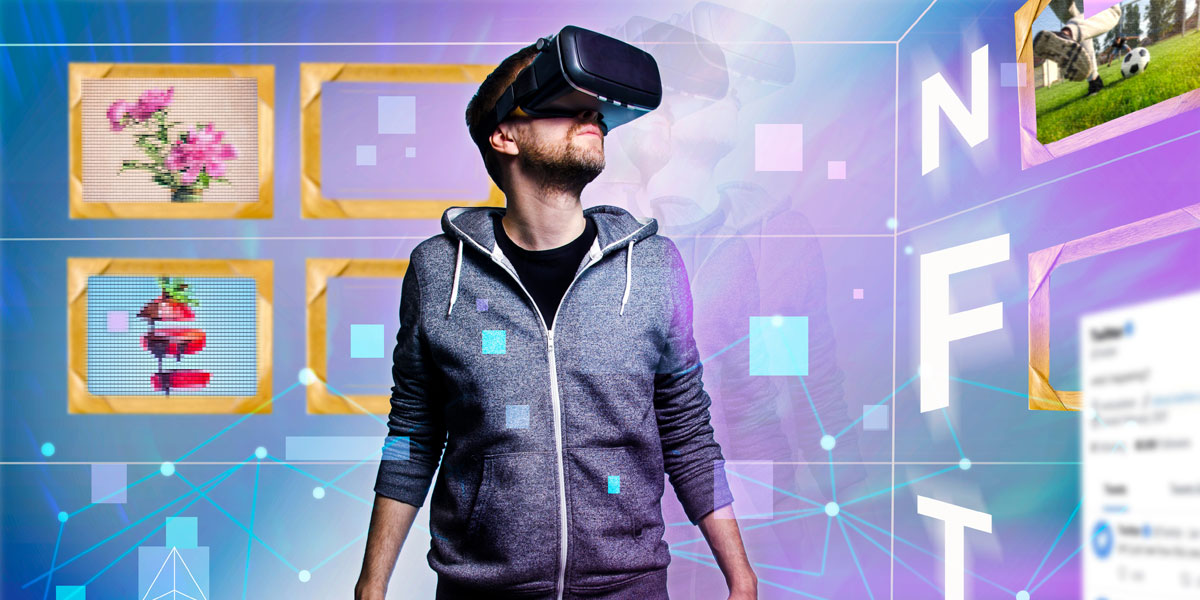Ever thought someone would pay thousands of dollars for a jpeg that can be viewed digitally? That’s what Beeple earned in the NFT world. Non-fungible tokens (NFT) in retail have become a cultural phenomenon – one of the hottest recent trends of our time. NFT sales volume totaled USD 24.9 billion in 2021, compared to just USD 94.9 million in 2020.
Savvy brands, artists, and celebrities all over the world are keeping pace with NFTs or blockchain-certified digital art. Why? A critical challenge for digital creators is how to make their creations scarce and eventually more valuable. Here’s where NFTs make the most sense. They have been applied to digital games, digital art, sports memorabilia and have gained incredible momentum as collectibles.
The prevalent appetite
In Q3 2021, sales of NFTs were USD 10.7 billion, up more than eight times from the previous quarter, indicating that digital assets ownership is climbing the curve. Driven by a younger audience, 72% of US consumers have accessed a virtual world in the last 12 months, with 50% of consumers expressing an interest in purchasing a digital asset according to BoF Insights.

NFTs come with a marketplace realm of its own. Quite like the Amazon, eBay, and Etsy of the physical consumer world, this space too is a mix of larger than life to niche, curated, collectible, and even game-centric marketplace players. Let’s get down to the most renowned ones:
Top 5 NFT Marketplaces
OpenSea – It is the world’s first and largest booming 13 million dollar marketplace. What makes it different from other marketplaces is that even though every NFT doesn’t have OpenSea’s seal of approval, finding, buying, or selling NFTs on this platform is super-seamless as it converts most cryptocurrencies. Plus sellers get to transact at a 2.5% commission, apparently the lowest as per industry standards.
Rarible – One of the oldest players around, similar to OpenSea, it allows easy trading and minting. It offers an array of NFTs to buy and sell. Rare also boasts a user-friendly interface, which is used to create NFT art. It’s based on Ethereum blockchain technology but needs its own RARI token to transact.
Axie Infinity – A popular marketplace in the gaming arena it has been a hub for an array of crypto and gaming enthusiasts to collect, buy and sell axies such as gaming collectibles and characters.
Mintable – It’s an open marketplace supported by Mark Cuban and much thought of as the Etsy of the NFT world. For creators of all types (from photographers to musicians) who want to sell their work as a digital asset, it is easy to use and supports the minting of NFTs.
GARI – It’s India’s first NFT marketplace that is driven by a social media platform. Based on the Solana blockchain and using its own cryptocurrency, also called GARI, it promises holders the chance to empower their favorite creators as well as access to govern the platform.
To monetize on this rapidly proliferating trend we took a look at how key brands and retailers are setting some context for future players even as they be the trend-setters.
How brands and retailers are jumping onto the NFT bandwagon
In an auction conducted by Wrangler, 75 animated “Icon-Tier” tokens were offered. Each of the tokens featured one of Leon Bridges’ dance moves. They also marketed Wrangler-branded virtual wearables on Decentraland and a VIP pass to an invite-only performance of the Grammy-winning musician scheduled at New York Fashion Week in September.

Pringles launched CryptoCrisp last March – a virtual flavor depicted as a piece of art by artist Vasya Kolotusha. A limited edition version of this “flavor” is a 1080*1080 MP4 file of an animated spinning golden Pringles can with Crypto-themed chips. The CryptoCrisp virtual flavor was made available on Rarible at the price of 0.0013ETH (approximately USD 2), the average price of a Pringles can.

Through NFT’s Rarible marketplace, Taco Bell is selling GIFs and images featuring tacos, and all proceeds from these will go toward the Live Más Scholarship through the Taco Bell Foundation. Additionally, the deal also included a real-world perk in the form of a USD 500 electronic Taco Bell gift card.

Gucci’s newest metaverse collaboration is with 10KTF, a virtual floating “New Tokyo” world with fashion accessories for NFT owners to buy and a fictional character called Wagmi-San. In another partnership with animated toy startup Superplastic, on a collection of “SuperGucci” NFTs, Gucci granted tiered access to purchase the NFT figures that came with real ceramic figurines.

Luxury retailer Neiman Marcus Group collaborated with Boss Beauties, a women-led NFT project, to unveil its new “Role Models” NFT collection. This new assortment featuring 25 one-of-a-kind NFTs was launched on OpenSea and includes an NFT of female leaders such as Ruth Bader Ginsburg, Katherine Johnson, and Frida Kahlo. A portion of the profits from the NFT sales will go to providing scholarships and mentoring programs for girls and women.
Effective ways brands and retailers can leverage NFTs
- Foster brand storytelling: Brands can create something digitally tangible that is owned by the customer and which represents their experience of the brand.
- Brand resonance: NFTs create the opportunity to provide a new level of personalization thanks to their uniqueness – generating awareness and driving customer loyalty and advocacy.
- Building community and engaging followers: They can be open to user-generated content, let fans suggest the kind of tokens they’d like to see, and offer them as rewards in crowdfunding campaigns and contests.
- Invest in brand image while engaging in social causes: You can demonstrate your brand’s dedication to social causes by using NFT revenue to support charities or artists by channelizing NFT revenues to their creations.
Additionally, in the e-commerce realm, since consumers can’t easily verify genuine products, they miss getting to interact with their purchases almost instantaneously like at physical stores. NFT innovators in retail are working in this direction to deliver a digital version of the physical goods within no time before the actual order reaches them. This helps ensure buyer satisfaction as the NFT version of the ordered digital asset is delivered.
There’s a ton of hype and a ton of energy surrounding NFTs in retail. From providing access to exclusive pre-sales, movie premiers, to a members-only club, or meeting your favorite celebrities and influencers, NFTs are transforming into gateways to the Metaverse. After all, the metaverse is supposed to be a place for commerce, for interacting with people digitally, a place to be entertained, and a place to live online. To know how we can help your brand or retail business explore unknown turfs through NFTs and for more in-depth insights on building a technology-driven strategy ahead, contact us.






